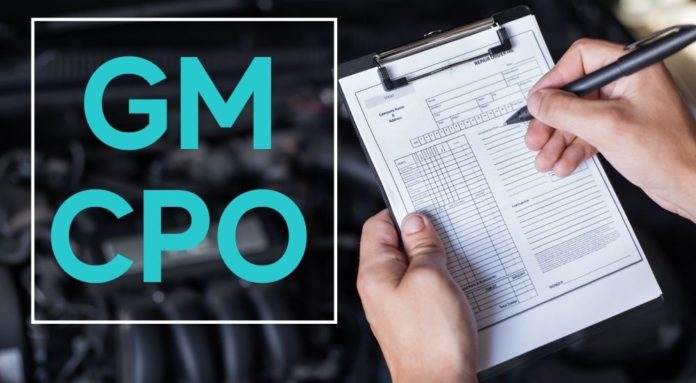The auto industry is like Vegas: the odds are never in your favor, the house always wins, and the hookers don’t actually like you. In an effort to come up with new ways to make you feel like you’re winning, even though you should’ve walked away from the table two hours ago, car manufacturers have created Certified Pre-Owned (CPO) offers. You’ll see these when you go to a used GM dealership or a dealer partnered with any particular brand – they’re inspected to meet the manufacturer’s standards and backed up by warranty coverage.
But what the auto industry doesn’t want you to know, oh reader o’ mine, is that there are a number of nefarious secrets buried deep in the esoteric terms and conditions of their burnt CPO offerings. The average person will never endeavor to tread the dark roads of these sinister truths, and this is what the industry is counting on. What they’ve never counted on, however, is that you have an intrepid and benevolent writer here to crack open the clay casing from their monstrous secrets and serve the truth, roasted and steaming, for you to devour.
The Warranty Coverage
One of the biggest selling points of a CPO model is that it includes warranty coverage from the original manufacturer, something you won’t typically find on other used models. Looking at the GM CPO program, as a f’rinstance, companies like Chevy and Buick love to brag about how they include a 6-year/100,000-mile powertrain limited warranty and a 12-month/12,000-mile bumper-to-bumper limited warranty on every CPO model. Sounds great, right? Who doesn’t want six years of powertrain warranty protection!?
Here’s the kicker: the powertrain warranty starts from when it was sold as new. So if you buy a model that’s three years old and has 60,000 miles on it, what you’re really getting is 3-years or 40,000 miles of warranty coverage. Don’t get me wrong, that’s better than nothing, but it’s certainly not as extensive as they would claim. If you’re planning on putting a lot of miles on your car, then you can burn through that pretty quickly – especially if the CPO model has close to the 75,000-mile limit they can have and still be certified.
The So-Called Inspection
According to the terms of GM’s CPO program, every vehicle has to pass a 172-point vehicle inspection to ensure it’s in great shape. That seems really impressive; they look at 172 different elements of the vehicle to make sure it’s in good condition. But once you check out the inspection checklist to see what they’re looking at, then some of the polish quickly wears off.
While there are important things like checking the fluid levels, the brake pads, and even a road test, some of the points are less impressive. For example, the owner’s manual being present is one point, as is the presence of wheels (thank the maker they check for that!), and the condition of the sun visor. Although Chevy denies it, I’ve also seen checklists that reveal they inspect the shoe size of the previous owner, as well as eye color. According to GM’s experts, men with blue eyes and small feet are more likely to drive recklessly.
Extra Benefits
GM likes to brag about how their CPO program includes an exchange policy, roadside assistance, and other benefits. All of that is true, but they don’t talk about the benefits that you might not notice unless you really dig into their terms and conditions. According to the CPO paperwork, as a buyer, you agree to allow any GM executive to borrow your vehicle whenever they need to, as well as to let their various mistresses and side pieces “sleep it off” in your car, at least one weekend per month.
Furthermore, you have to follow their scheduled maintenance program, including a visit within 2 years or 24,000 miles. This visit includes checking your vehicle’s fluids, your fluids, and the various fluids of your friends and neighbors. From my own experience, I can assure you that GM’s certified service professionals are neither gentle nor expeditious when it comes to your precious bodily fluids. You’ve been warned.
Editor’s Note: We’ve reached out to GM for comment on the claims made within this article. While they have not yet responded, we have looked over the terms and conditions of our own CPO agreements and find much of the language contained therein to be alarming in the extreme. Our fluids are our own damn business! Thank you.












